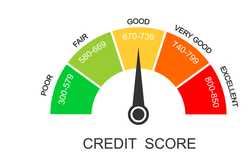How to Dispute a Credit Card Charge in 5 Steps


Our evaluations and opinions are not influenced by our advertising relationships, but we may earn a commission from our partners’ links. This content is created by TIME Stamped, under TIME’s direction and produced in accordance with TIME’s editorial guidelines and overseen by TIME’s editorial staff. Learn more about it.
Credit cards, with their quick and secure payments, are a popular form of payment in today’s world. Cardholders can earn rewards or get extra time to pay off the transaction. Plus, it is easy to dispute a transaction if you don’t recognize a charge or if there’s a problem with the merchant’s products or services. Here’s how to dispute a credit card charge, what information you should provide, and what to do if your dispute is denied.
When you have a transaction that you want to dispute, there are several steps you should take to improve your chances of winning the dispute.
Every month you should review your transaction history online, through the card’s mobile app, or on paper statements received in the mail. Compare the amounts posted to your account against your receipts to ensure that they match. Look for differences in amount, duplicate transactions, or charges that you don’t recognize.
Even if you hadn’t used your credit card that month, it is still possible that unauthorized transactions could have been posted to your account.
If you find unauthorized charges on your credit card, contact the merchant to discuss the transactions. It may be an error that it can quickly fix—a duplicate charge, transposed numbers, or other situations. The merchant may also reverse the charge if you tell them it was unauthorized.
In some cases, the merchant may have a different name on credit card charges than the name on its website or retail store. When you contact the merchant, you may be able to recognize its trade name and determine that it was a valid charge.
If you’re disputing a transaction you recognize, gather supporting documentation justifying why you shouldn’t owe the money. The types of documentation needed varies depending on why you’re disputing the charges.
Here are a few examples of the documentation you should compile depending on the reason for the dispute:
Once you’ve compiled your supporting documentation (or at least started the process), contact your card issuer right away. Call customer service, dispute the transaction online, or send a secure message through its online portal.
Customers typically have at least 60 days to dispute a transaction. If you’re having trouble gathering the documents or it’s taking longer than expected, start your dispute now, then return your focus to the supporting documentation.
Let the card issuer know which transaction you want to dispute and why. Depending on the card issuer, the reason for the dispute, the transaction amount, and other factors, the issuer may require supporting documentation. The customer service agent will let you know which documents to provide, if any.
Compile your supporting documentation and fill out the bank’s dispute form (if required). Submit the information right away because the bank may close the dispute without reversing the charges.
It is generally best to provide all information at once rather than piecemeal. This ensures that whoever is reviewing your dispute has all of the information necessary to make a decision. If you submit incomplete information, it could delay the dispute longer than necessary.
Although many disputes are filed over the phone or online, sometimes you need to include a dispute letter to explain the situation. To have the most effective dispute letter possible, include the following information:
The most important information for the letter is to include the transaction details. This includes the date, location, vendor, and amount of the transaction.
In clear and concise language, explain why you are disputing the transaction. Include details of any attempts to resolve the charges with the vendor to resolve the situation.
Your dispute should be as factual as possible. Keep the letter short and sweet with a focus on the disputed charges and why you are disputing them. Don’t include unnecessary information, and avoid using inflammatory or emotional language about the situation.
The amount of time you have to dispute a transaction depends on the reason for the dispute. Most credit card issuers allow customers 60 days or longer to dispute a transaction.
Under the Fair Credit Billing Act, you have 60 days from the date you receive your statement to dispute errors. Depending on when the transaction occurred during the statement period, you may have up to 80 days or longer from the transaction date to dispute the error.
When there are problems with the product or service purchased, you have up to 120 days from the transaction date to file a dispute.
According to the Consumer Financial Protection Bureau (CFPB), the card issuer must send you a letter within 30 days of receiving your dispute. It must complete its investigation within two complete billing cycles. This means that it has approximately 60 to 90 days to provide you with a decision.
One of the easiest ways to file a dispute with your credit card company is to call the phone number on the back of your card. If you don’t have your credit card handy, you can call the general customer service number.
Here are the general customer service numbers for common credit card issuers where you can file a credit card dispute:
Some issuers also allow cardholders to file a dispute directly from their website or by sending a direct message through their online portal or mobile app. If the bank that issued the credit card has a local branch, you can also file a dispute in person. You can also mail the card issuer a letter.
Most credit card companies provide provisional credit while they research disputes. During this time, those transactions will not accrue interest and will not affect your minimum monthly payment. The provisional credit applied to your account does not count towards your required payment amount.
While the transaction is being researched, continue making payments on your account. Ideally, you’ll pay your account balance down to zero to avoid interest charges. If you cannot do that, at least make the minimum required payment to avoid late fees and negative marks on your credit history.
Even if you believe that you have a valid reason for disputing the transaction, not all disputes are approved. In some cases, the credit card company may deny all or some of your dispute. When your request is denied, you’ll receive a letter notifying you of the decision. The disputed amount will be posted to your account, including any interest or other charges that accumulated while the charge was in dispute.
If your credit card dispute was denied, follow these steps:
Customers have 10 days or until the disputed amount is due, whichever is later, to file an appeal. When appealing the decision, clarify your reason for the dispute and address the reasons why the bank denied your claim.
If you are unable to get a positive resolution to the dispute, you can file complaints with regulatory authorities. These complaints can be filed with the Federal Trade Commission (FTC), CFPB, or your state’s attorney general.
Complaints can become complicated, so you may want to hire an attorney to represent you. Consider if the disputed amount is worth it. However, if you win your dispute, you may be awarded attorney’s fees as part of your compensation.
When the bank denies your dispute, it may report your account as delinquent if you are unable or unwilling to pay the amount owed. Dispute the account with the credit bureaus, then explain your reasons for disputing the amount and the steps you’ve taken to address the situation.
Even though the bank denied your request, the credit bureaus may be willing to approve it. If the credit bureaus approve your request, the card issuer cannot take action against you for exercising your rights. It cannot close your account, threaten your credit, assess finance charges on the disputed amount, or other negative actions.
Consumers increasingly use credit cards as a primary form of payment online, over the phone, and in person. With the increased use of credit cards, the potential for unauthorized charges or errors grows. It pays to review your credit card activity regularly to look for errors, duplicate charges, fraudulent transactions, and other unauthorized charges.
You must contact the card issuer to dispute the charge within 60 days of the statement closing, and it must complete an investigation within 90 days. If your dispute is denied, you can take additional action to preserve your rights and hope for a better outcome.
Yes. You can dispute a credit card transaction, even if you willingly approved it at the time. Disputes like this happen frequently when a vendor doesn’t deliver the goods or services as promised. Additionally, you can (and should) dispute a transaction if the item doesn’t perform as expected or breaks unexpectedly, and the vendor won’t correct the problem or offer a refund.
The process of disputing a credit card charge is fairly simple at most banks. Generally, you can file a dispute by contacting the card issuer’s customer service. Some credit card companies allow customers to file disputes online or by submitting a secure message through their website or app.
Credit card customers can dispute any charge that they didn’t make, if it is for the wrong amount, or if they’re dissatisfied with the product or service they received. Typically, the best first step is to contact the vendor. However, if you can't get a refund or resolve the issue, you should dispute the transaction.
If you need to dispute a credit card charge you made, start by contacting customer service. You’ll need to provide an explanation of why the charge should be reversed. In some cases, you may be asked to provide documentation—such as receipts, warranty information or emails—that support your reason for disputing the transaction.
The information presented here is created by TIME Stamped and overseen by TIME editorial staff. To learn more, see our About Us page.



